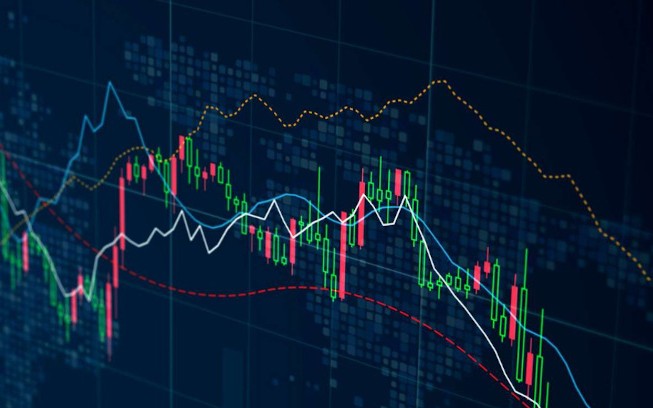
Unmasking Forex Trading Scams: Protect Your Investments
If you are exploring the world of forex trading, it is crucial to be aware of the various scams that lurk in the shadows. With a market as expansive and lucrative as forex, scams can often appear sophisticated and convincing. Many traders, both novice and experienced, have fallen victim to these deceitful practices. This article will guide you through the maze of forex trading scams and provide insights on how to protect your hard-earned money. For more comprehensive information on trading platforms, visit forex trading scam https://onlinetrading-cm.com/.
Understanding Forex Trading Scams
The forex market operates 24 hours a day, five days a week, providing ample opportunities for scams to proliferate. Scammers exploit the fast-paced nature of this market to inflict financial losses on unsuspecting traders. Forex scams come in various forms, each designed to deceive and manipulate traders into parting with their money. The following sections will delve into some common types of forex trading scams.
1. Ponzi Schemes
One of the most notorious scams in the forex trading world are Ponzi schemes. These schemes promise high returns with little or no risk involved. They work by using the funds from new investors to pay profits to earlier investors. The illusion of profitability keeps the scheme running until it inevitably collapses, leaving later investors with substantial losses.
2. Fake Trading Platforms
With the rise of online trading platforms, scammers have created fake platforms that seem legitimate. These platforms may mimic the appearance of well-known trading sites, offering attractive incentives and unrealistic returns. Once a trader deposits funds, the scammers disappear with the money, often leaving little to no trace behind.
3. Signal Selling Fraud
Signal selling refers to the practice where individuals or organizations sell trade signals or recommendations, claiming they can predict market movements with high accuracy. Many scammers offer these services at exorbitant prices, but in reality, they do not possess any special knowledge or tools. Traders who rely on these paid services often end up frustrated and out of pocket.
4. Phishing Scams
Phishing scams target traders through deceptive emails or messages that appear to come from legitimate sources, such as brokers or exchanges. The aim is to trick traders into providing sensitive information, such as usernames, passwords, or credit card details. Once the scammers acquire this information, they can access victims’ trading accounts, leading to significant financial losses.
5. Clone Firms
Clone firms mimic the details of regulated and well-known brokerages, creating a false likeness to gain the trust of potential traders. These firms can be particularly challenging to identify, as they often use official-sounding names and logos. They lure traders in by promising high bonuses or exclusive offers, which ultimately result in significant financial damage.
Identifying Forex Scams: Red Flags
Knowing how to identify potential scams is vital for anyone engaged in forex trading. Here are several red flags to be aware of:
- Unrealistic Promises: If a platform offers guaranteed returns or claims that you can’t lose money, be cautious. In trading, risk is inherent, and no one can predict outcomes with certainty.
- Lack of Regulation: Always check if the broker or trading platform is regulated by a recognized authority. If they are not, it’s a significant warning sign.
- Poor Online Reviews: Research and read reviews about a broker or platform. If you see consistent complaints regarding withdrawals or customer service, consider avoiding them.
- Pressure Tactics: Be wary of any entity that pressures you to invest or make rapid decisions. Scammers often push traders to act quickly to minimize due diligence.
- Inadequate Customer Support: Test the customer service of the broker. If they are unresponsive or difficult to reach, it might be a red flag.
Protecting Yourself from Forex Trading Scams
To safeguard against forex scams, consider the following strategies:
- Do Your Research: Thoroughly research any broker or platform before committing your funds. Look for reviews and testimonials, and verify their regulatory status.
- Start Small: If you are testing a new broker, start with a small investment until you are confident in their reliability.
- Stay Informed: Keep yourself updated with the latest trends and news in forex trading to recognize potential scams quickly.
- Utilize Demo Accounts: Many reputable brokers offer demo accounts. Use these for practice to gauge the platform’s services without financial risk.
- Trust Your Instincts: If something feels off about a trading opportunity, it probably is. Trust your instincts and take a step back.
Conclusion
The forex trading environment can be both exciting and volatile, making it a target for scams that prey on traders’ dreams of financial success. By familiarizing yourself with the different types of scams, recognizing the red flags, and implementing protective measures, you can navigate the forex market safely. Always prioritize research and vigilance when entering this lucrative arena, ensuring you safeguard your investments against deceptive practices.
In summary, stay informed, be cautious, and remember that education is your best defense against forex trading scams. With the right approach, you can enjoy successfully trading forex while steering clear of potential pitfalls.